Special session possible to renew industrial incentives
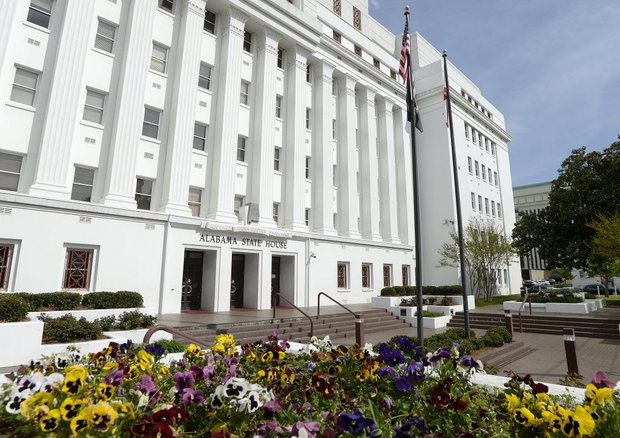
The Alabama Jobs Act, which provides tax credits and rebates to new industries, will expire on Dec. 31.
Ala. State Sens. Dick Brewbaker, Paul Bussman resign from Republican Caucus
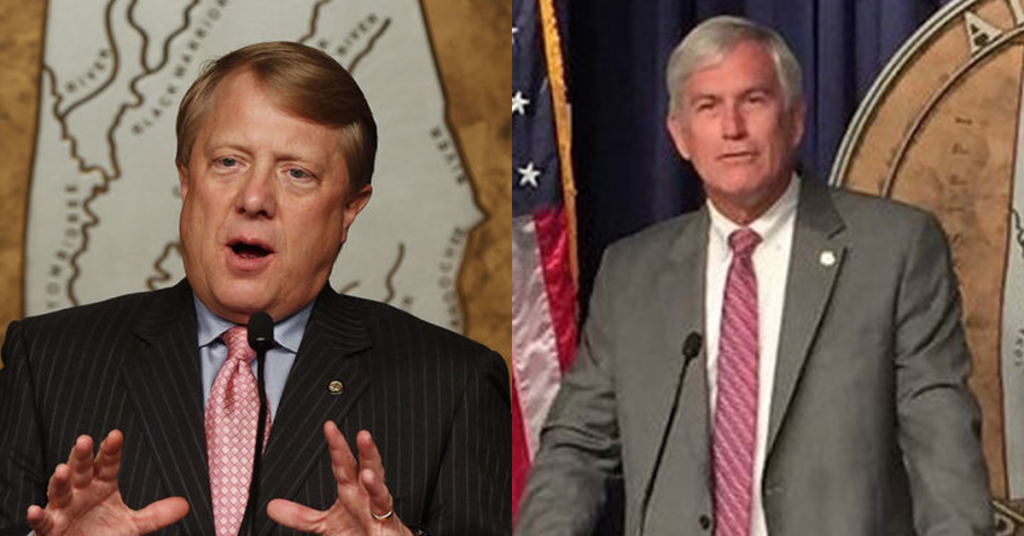
Montgomery State Sen. Dick Brewbaker has resigned from the Alabama Senate Republican Caucus. The two-term Republican, who announced in November he does not plan to seek re-election in 2018, resigned Friday to protest the way various lottery proposals have been handled in the current special session of the Alabama Legislature. Monday, Brewbaker said he assumes his resignation means he will lose his seat as chairman of the Senate Education and Youth Affairs Committee. Brewbaker was joined by Cullman State Sen. Paul Bussman. Both lawmakers have said they remain Republican, but have sent formal letters to Senate leadership withdrawing from the majority caucus. “In order for the Alabama Senate to operate fairly, we have set rules by which all members must abide,” Bussman said in a Facebook post Tuesday explaining his resignation. “This organized process is crucial to a fair and transparent government. It is when these rules are not followed that the breakdown of the system occurs. The process broke down last week when these rules were violated. These rules cannot be used when convenient and discarded when it is inconvenient.” Bussman continued, “I can no longer sit back and ignore the actions of the Alabama Senate Republican Caucus leadership which are misguided, unequally applied, punitive and divisive. As a result, the caucus has made a significant shift in priorities since 2010. In order for us to be successful in Alabama, we cannot return to the old ways of doing business. We are expected to do better and we must do better.” Despite the defections, the GOP will still hold the supermajority in the Alabama Senate with 24 members. There are only eight Democrats and one independent.
Luther Strange weighs in on Alabama lottery legislation
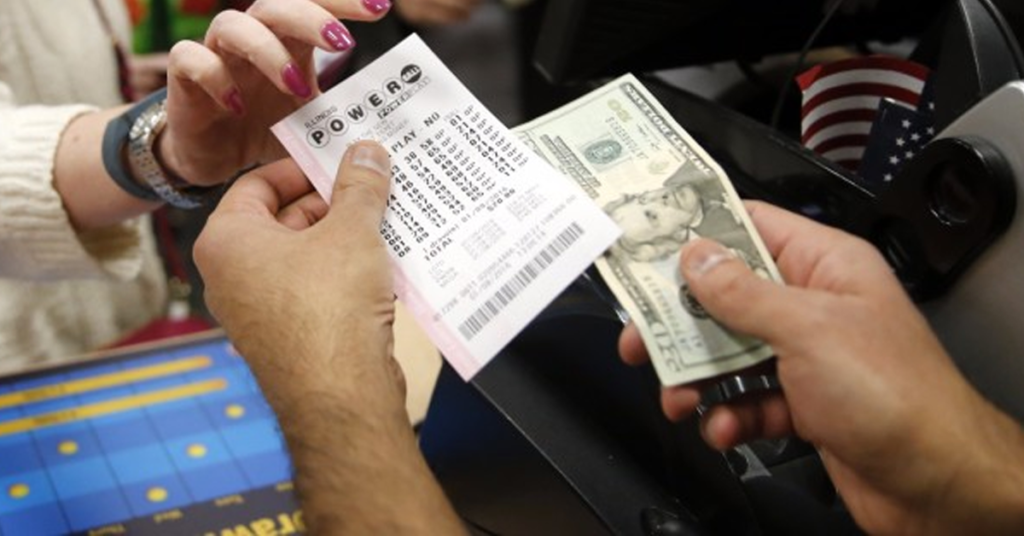
Various lottery bills are being considered by Alabama state lawmakers Tuesday, but Alabama Attorney General Luther Strange doesn’t support any of them. Strange released a statement Tuesday morning, calling the proposed state lottery a “Band-Aid” for the state’s ongoing budget shortfall. “I am personally opposed to any lottery to fund state government,” said Strange. “I believe the lottery is, at best, a Band-Aid on the state’s budgetary problems and will not provide the kind of longterm solution we need.” He also said he believes one of the lottery proposals could open loopholes that would lead to casino gambling. Strange continued, “As attorney general, I have been approached by the Legislature to offer a legal interpretation of the impact of the various lottery proposals upon the state. My office has reviewed the governor’s proposed constitutional amendment (SB3). If the amendment passes as proposed and is followed by responsible enabling legislation, my legal team believes it will create a limited lottery without the kinds of loopholes that will lead to casino gambling or protracted litigation. However, if Sen. McClendon’s proposed constitutional amendment (SB11) passes, my legal team believes it will not only allow for a lottery, but will lead to casino gambling and protracted litigation.” A special session of the state Legislature began Monday to consider a state lottery. There, Gov. Robert Bentley is asking state lawmakers to approve a referendum that would allow state voters to decide whether or not Alabama should have a lottery. Bentley said a lottery could raise an estimated $225 million per year.
Robert Bentley releases proposed constitutional amendment for Alabama lottery

Gov. Robert Bentley Friday released a proposed amendment to the Alabama Constitution that would allow voters in November to decide whether the state should have a state lottery. The three-page proposal designates proceeds from the lottery to first be applied to cover the operational expenses of the lottery and paying prizes. Remaining proceeds would then be deposited in the state’s general fund budget. Bentley estimates the lottery would generate roughly $225 million a year. On Aug. 15 the Alabama Legislature will meet in a special session, called by Bentley last week, to consider the lottery proposal. “We must once and for all solve problems that have held our state back for decades,” Bentley said last week. “The time has come for us to find a permanent solution …. This solution will provide funding that we can count on for year after year without ever having to raise your taxes or put one more band-aid on our state’s money problems.” Three-fifths of the members of both the Alabama Senate and the House would have to approve the amendment, which would then be subject to a statewide referendum. In order for the proposal to make it on the general election ballot Nov. 8, the Legislature would need to approve Bentley’s proposal no later than Aug. 24.
Email Insights: Alabama Policy Institute calls state lottery ‘voodoo budgeting’
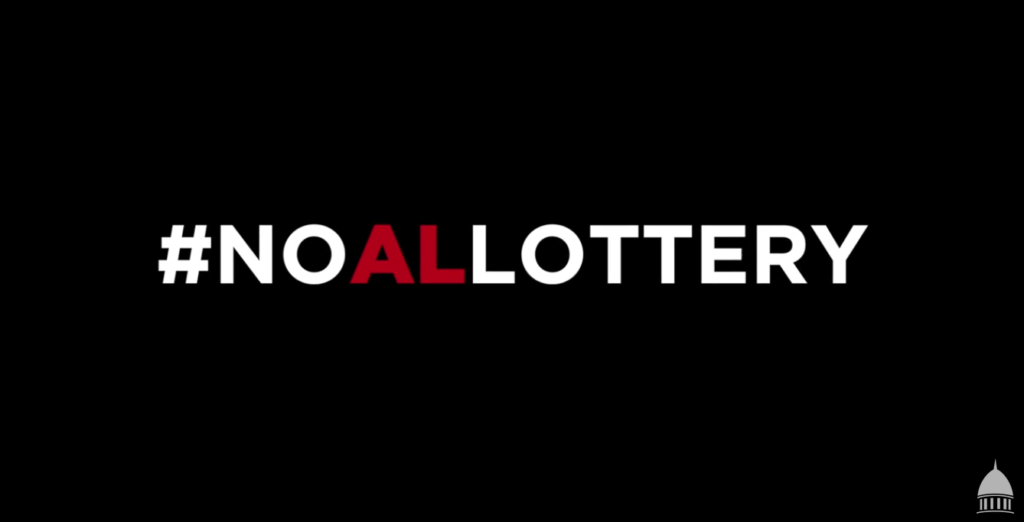
The Alabama Policy Institute (API) sent an email with a video Wednesday that calls Gov. Robert Bentley‘s proposal for a state lottery “voodoo budgeting.” In July, Bentley called for a special session of the Alabama Legislature to push through legislation that would implement a state lottery. In his announcement, Bentley assured the people of Alabama a lottery would be a “permanent solution” to the state’s budget woes. According to API, this, among other things in his announcement, is simply not true. Watch API’s video and read the full email below: Some promises are too good to be true. Last week, Governor Bentley told the people of Alabama that implementing a state lottery would be “a permanent solution” that “will provide funding that we can count on year after year.” This is simply not true, as evidenced by the experiences of other states with lotteries. Whatever one’s opinion might be on the idea of a state lottery in Alabama — and we at API, of course, stand firmly against it — state leaders arguing for a lottery owe the people of Alabama an honest argument, supported by facts. API will continue to do our part to keep Alabama’s politicians honest. The people of Alabama deserve nothing less.
Robert Bentley announces date for lottery special session
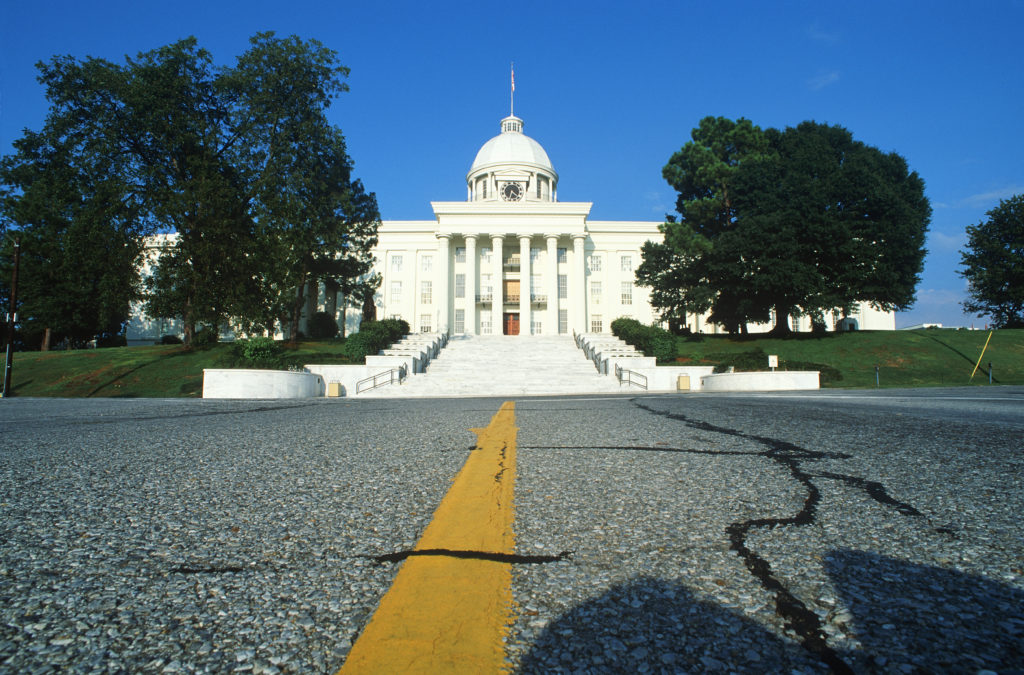
Gov. Robert Bentley has announced the date for a special legislative session for Alabama lawmakers to discuss the possibility of a statewide lottery. The special session will begin Aug. 15. Wednesday, the governor announced the special session, saying it would generate $225 million a year to help pay for basic state services, but he didn’t announce the date at that time. “I will not, as your governor and as a physician, watch as our most helpless and vulnerable people go without a doctor’s care,” Bentley said in the video Friday. “I can’t bear to think of the half-million children who, through no fault of their own, are born into poverty and have no way to get basic medical treatment they need to grow healthy and strong.” Bentley hopes to have the lottery legislation on the Nov. 8 general election ballot. In order for that to happen, the Legislature would need to approve it no later than Aug. 24. Alabama is one of only six states across the country without a state lottery. Voters rejected a lottery proposal under Gov. Don Siegelman in 1999 amid heavy opposition from church groups opposed to gambling. The governor called a lottery the best option for solving the state’s ongoing budget problem, telling Alabamians “this is not just about a lottery, this is about our people.” Watch Bentley’s announcement below:
Jim Zeigler questions Robert Bentley’s lottery special session

Alabama State Auditor Jim Zeigler is asking questions about Gov. Robert Bentley‘s Wednesday announcement of a special session of the Alabama Legislature to consider a statewide lottery. Bentley explained a lottery would raise roughly $225 million a year, revenue which could be applied to basic services such as ones that aid children, the elderly, the mentally ill, and law enforcement. A longtime critic of Bentley, Zeigler took the opportunity to question Bentley’s past decisions, referencing several recent incidents where he believes the governor has cost Alabama taxpayers millions. “Would there be safeguards to keep Bentley supporters from getting no-bid contracts with the lottery commission?,” Zeigler asked in a news release shortly after Bentley’s announcement. “Would there be safeguards to prevent Bentley insiders from landing $200,000-a-year jobs with expense accounts and luxury state cars? Would there be safeguards to prevent the revenues from being siphoned off for Bentley pet projects?” Zeigler announced last week a special session would cost Alabama taxpayers $350,000.
Robert Bentley calls special session for Alabama lottery
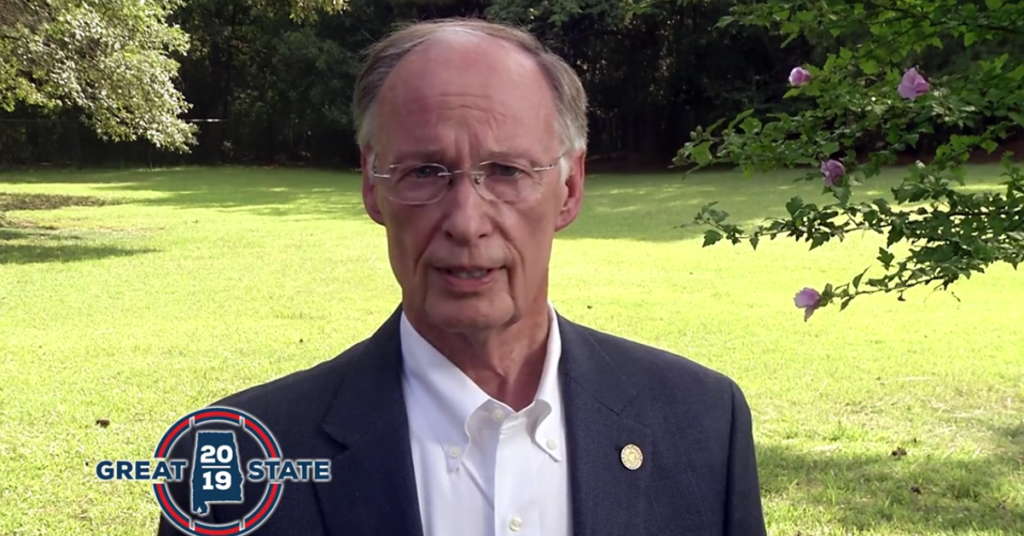
Alabama Gov. Robert Bentley is calling a special session of the Alabama Legislature solely tasked with considering a state lottery. Bentley announced the plan Wednesday morning in a video posted on his website where he says he wants lawmakers to approve legislation that would allow voters to decide whether to approve a constitutional amendment to allow a lottery. “Let’s hear from the people of this great state on whether the time has come to approve a statewide lottery to help fund essential state services for our children, our elderly, those with mental illness and those who are in most need, as well as the men and women in law enforcement,” Bentley said. BREAKING: We need your help solving our funding crisis.I’m giving you the opportunity to vote on a Statewide Lottery. https://t.co/BLzE3bOXLP — Gov. Robert Bentley (@GovernorBentley) July 27, 2016 Bentley explained a lottery would raise roughly $225 million a year, revenue which could be applied to basic services. “We must once and for all solve problems that have held our state back for decades,” Bentley explained. “The time has come for us to find a permanent solution …. This solution will provide funding that we can count on for year after year without ever having to raise your taxes or put one more band-aid on our state’s money problems.” In order for a lottery proposal to make it on the general election ballot Nov. 8, the Legislature would need to approve it no later than Aug. 24. Bentley did not announce a date for the session. Watch Bentley’s announcement below:
Mike Hubbard expects special session over Medicaid funding

Though the House of Representatives ended its week on a low note, as Democrats filibustered plans to bring forth a General Fund void of adequate Medicaid funding Thursday, House Speaker Mike Hubbard (R-Auburn) was enthusiastic. “I think it was a productive week,” Hubbard said. Hubbard celebrated the House’s passage of a slew of bills, as well as committee work to move the General Fund onto the House floor Tuesday, but was fatalistic in his assessment of how the General Fund will play out. According to Hubbard, Medicaid has long been syphoning an enormous portion of the state’s General Fund allocations to the detriment of other departments. He noted that most House Republicans don’t have the appetite to continue providing the increases the program has become accustomed to. “The money to appropriate is there,” Hubbard said. “The problem is that Medicaid wants all of it and then some.” Hubbard noted that he expects Gov. Robert Bentley to call a special session if the General Fund fails to fully fund Medicaid, but said it would be a mistake to call legislators back immediately after the close of the regular session. He added that it might be prudent to see how the November General Election plays out, as changes to healthcare may be on the horizon. Along with the prison system, Medicaid takes up roughly 62 percent of the General Fund budget. The only way to fund it at the desired amount, Hubbard said, would be to cut about $85 million from other departments’ budgets – Medicaid will receive an additional $15 million this year, but still faces a shortfall of roughly $100 million. “We’re not going to fund Medicaid at the expense of educating our kids,” Hubbard said. During the session, Rep. John Knight (D-Montgomery) mentioned that the state should look into raising more revenue, likely through tax hikes. However, Hubbard noted that moves to increase revenue from last year’s cigarette tax increase was difficult to pass and doesn’t believe House members would be willing to fight it out again this year. Though he believes the Democrats will filibuster the budget when it comes to the floor next week, Hubbard still thinks bringing it now is a good idea as lawmakers are still angling for passage before spring break.
Alabama Legislature special session to end without budget
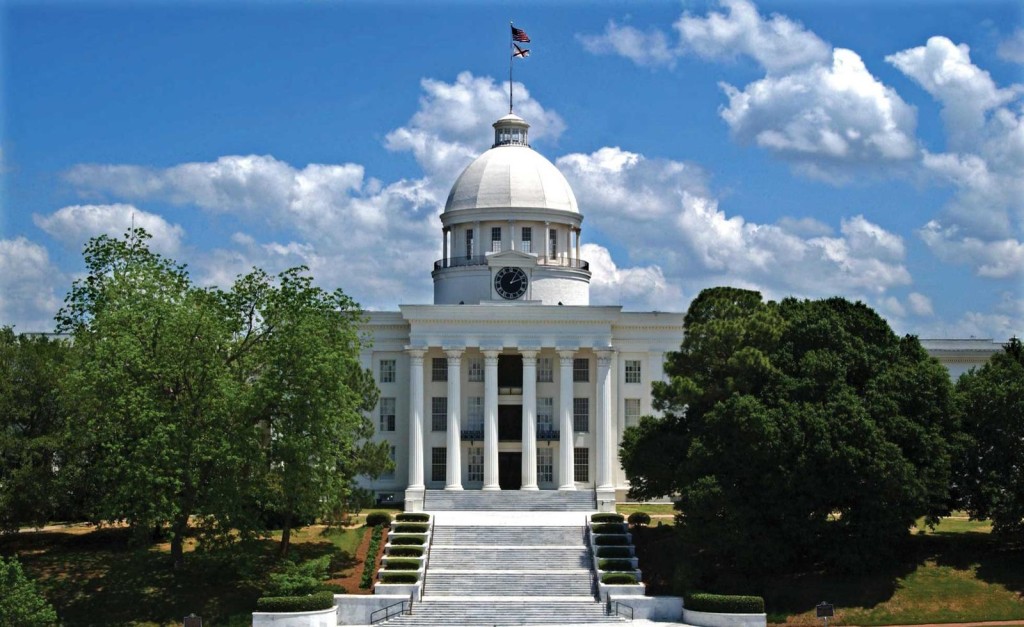
Special session number one is in the books. Bring on round two. Alabama lawmakers on Tuesday ended a special session without a budget as lawmakers remained unable to agree on taxes or cuts to address a looming fiscal shortfall. Gov. Robert Bentley said he will call lawmakers back to Montgomery in a second special session, making another attempt at persuading them to approve $300 million in tax increases to avoid reductions in state services. “The Legislature was unable to do what their only job is and that is to pass a budget. That was the reason they were called in, and they have failed,” Bentley said in a news conference outside the Alabama Capitol. “It really boils down to, are we willing to make these drastic cuts and hurt the lives of the people of this state? Are we willing to close down state parks? Are we willing to close down hospitals? Are we willing to tell the children of this state that they can’t get immunizations?” The budget debate revealed a political chasm between Republicans willing to discuss revenue options and those taking a hard line against tax increases. The GOP has a supermajority in both chambers but hasn’t been able to agree among themselves or with the Republican governor on what to do. Senators passed a cut-filled budget that House members rejected by an overwhelming 92-2 vote on Monday night. “I’ve never seen a gulf this wide. ….. We have a huge, huge personality driven conflict between the House and Senate. There’s just no way around it,” state Sen. Cam Ward, R-Alabaster, said. Legislators do agree on one thing. They are urging Bentley to wait a few weeks before bringing them back to Montgomery. “Until the dynamic changes, you’ve got the definition of insanity, doing the same thing over and over,” Senate Finance and Taxation General Fund Chairman Arthur Orr, R-Decatur, said. Bentley would not say when he would call lawmakers back, but said it would likely be in a few weeks. The session would bump up against the Oct. 1 start of the fiscal year, ratcheting up the pressure to get a budget approved. Alabama’s general fund budget faces a projected $200 million shortfall and needs additional money for Medicaid and prisons and to repay funds borrowed from state coffers. Proposals such as a cigarette tax, a soft drink tax, ending a state income tax deduction for FICA taxes paid and yanking the money from the separate education budget were floated during the special session but all failed to get enough traction to get to a floor vote. Senators, representatives and Bentley all expressed frustration. Some lawmakers said Bentley called the session too soon, before agreements were reached. Bentley said his trust level has declined as he wrangles with lawmakers. “I have been told many things that have not come to be,” Bentley said. House and Senate budget chairmen said they are trying to work on bridging divides before lawmakers return. “We’re back to square one, but I think square one is a lot clearer now,” House Ways and Means Committee Chairman Steve Clouse, R-Ozark, said. Despite two political losses under his belt, Bentley said he remained optimistic, praising senators who said they were willing to make the hard choice and vote for taxes. Republican Senate President Pro Tem Del Marsh said senators do not have an appetite for tax increases. He said lawmakers will try to arrange meeting days so they could override any gubernatorial veto of a budget in a second special session. “You’ve got to have time for an override. I don’t think the governor is going to settle for anything short of several hundred million in tax increases. I really hope this Legislature does not give that to him,” Rep. Ed Henry, R-Hartselle, said. Republished with permission of the Associated Press.
Robert Bentley won’t retreat on taxes as budget stalemate continues
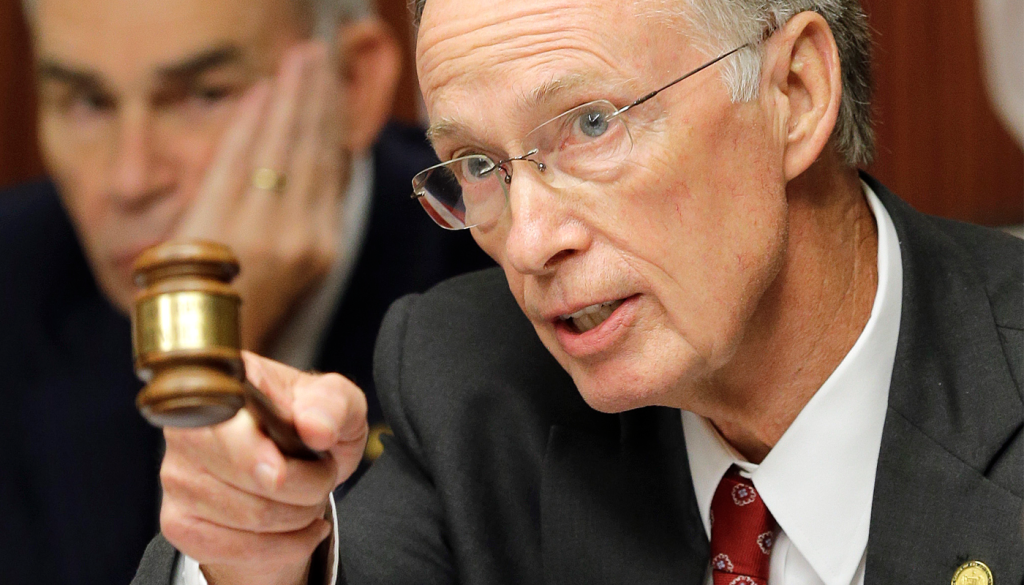
Republican Gov. Robert Bentley said he will not retreat as he battles with members of his own party over tax increases. The cuts to state services, which will be required if lawmakers fail to plug a revenue hole, will cause a “tremendous amount of pain to the citizens of this state,” Bentley said. “We’re dealing with real people and real people’s lives,” Bentley told The Associated Press. “We have to have some taxes. We have to have new revenue.” The GOP governor has taken up a high-profile quest to convince the Republican-controlled Alabama Legislature to approve taxes to avoid budget cuts. So far he has failed. Lawmakers rejected his call for $500 million in taxes in the regular session that ended in June. A special session, in which Bentley sought $302 million, appears as if it will conclude next week without significant new revenue. The governor said a cut-filled budget headed to the Senate floor Monday is unworkable. Lawmakers say they expect Bentley to pocket veto the bill and bring them back for a second special session. State agencies are now seven weeks from the Oct. 1 start of the fiscal year and do not have an operating budget. The governor would not say when he expected to call lawmakers back, leaving open the possibility that he could call them back right before the start of the fiscal year. The sharpest resistance has come in the Senate. “That’s where we are on total different sides right now. You’ve got a lot of people, in the Senate anyway, who believe it’s just time to live within our means,” Senate President Pro Tempore Del Marsh said. “Right now there have not been the screams from our constituents that there is a problem,” Marsh said. The House has been more willing to work on revenue ideas. A 25-cent-per-pack cigarette tax failed in committee by one vote when both Republicans and Democrats voted against it. Speaker of the House Mike Hubbard said, “when that collapsed, everything collapsed.” However, Hubbard said he thought the House was “very close” to getting a consensus for something that could pass through the chamber in a second special session “We just have to do what we believe is in the best interest of the people of the state of Alabama. Let’s put a proposal together and let’s send it up (to the Senate) and try to put the pressure on them to try to do the right thing,” Hubbard said. Marsh has proposed taking $225 million from the education budget, saying a savings account for the fund and the fund’s other taxes, which grow every year, could absorb the loss. He said lawmakers could decide later about backfilling the revenue. The state Department of Education and other education groups have launched an offensive push against that idea. Hubbard said the House would not go along with taking money from education without replacing it. Marsh has also proposed letting voters decide on establishing a state lottery and casino although that money would not be available for the immediate budget. Despite two losses with lawmakers, Bentley said he remain optimistic. He said the pressure is beginning to build on lawmakers. However, lawmakers opposed to Bentley could have an advantage in a second special session. Marsh said senators will try to arrange their meeting days so there will be time to override a budget veto. Republished with permission of the Associated Press.
Alabama House committee votes down cigarette tax

A legislative committee on Tuesday voted down a proposed hike in Alabama’s cigarette tax, killing one of Gov. Robert Bentley‘s major proposals for filling a hole in the state’s general fund budget. Tempers and frustrations flared on the third day of Special Session as lawmakers grappled with a $200 million shortfall. Bentley said he was disappointed because lawmakers have had months to address the budget crisis. “The Legislature has failed to do that. They failed in the regular session and thus far they’ve failed in the special session,” Bentley said Tuesday evening. The House Ways and Means General Fund Committee voted down a 25-cent-per pack cigarette tax by an 8-7 vote. Committee Chairman Steve Clouse was visibly frustrated after the vote. He said the tax, which would have raised $66 million, would have helped level fund prisons, Medicaid and other crucial state functions. “I thought it was a good budget but evidently that all fell apart,” Clouse, R-Ozark, said. Clouse said he was frustrated that three of the seven ‘no’ votes were from Democrats even though their caucus endorsed the idea in past sessions. House Democrats have said they will not support tax increases as Republicans oppose Medicaid expansion and a vote on a lottery. In some political hardball, Clouse responded with a new budget that would cut the state’s Medicaid program by $156 million. State Health Officer Don Williamson said he was uncertain if the state could maintain a Medicaid program at that level. Clouse said Medicaid is the biggest problem facing the General Fund. The proposed budget will be up for debate Wednesday in the House of Representatives. Rep. Darrio Melton, D-Selma, called the move appalling. “To take and use Medicaid as a pawn is totally unfair,” Rep. John Knight, D-Montgomery, said. Testiness also was on display in the Alabama Senate as a committee narrowly approved a rival, but equally contentious, proposal to shore up the general fund by taking $225 million in use tax revenue from the state’s separate education budget. Sen. Trip Pittman, chairman of the Senate education budget committee, said taking the money increases the chances of future budget cuts and squelches chances for a teacher pay raise in coming years. Pittman said he could not support the shift without something to help backfill the budget. Senate President Pro Tem Del Marsh, the bill’s sponsor, said it was a way to help the anemic general fund. “Instead of backfill, we should be talking backbone,” Marsh said. Marsh is sponsoring a separate lottery and casino bill that he said could provide the money to the education budget if lawmakers and voters approve. Bentley has asked lawmakers to approve $302 million in taxes after failing to convince them to approve $541 million earlier this year. Lawmakers have rejected many of Bentley’s other ideas, but the cigarette tax until Tuesday appeared to have some traction in the House of Representatives. The governor on Tuesday partly blamed the gambling push for changing the landscape of the special session. “They really do not want a solution because they want to solve this with gambling,” he said. Republished with permission of The Associated Press.


